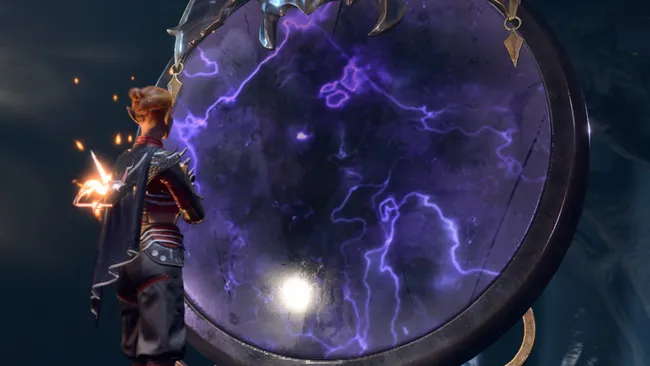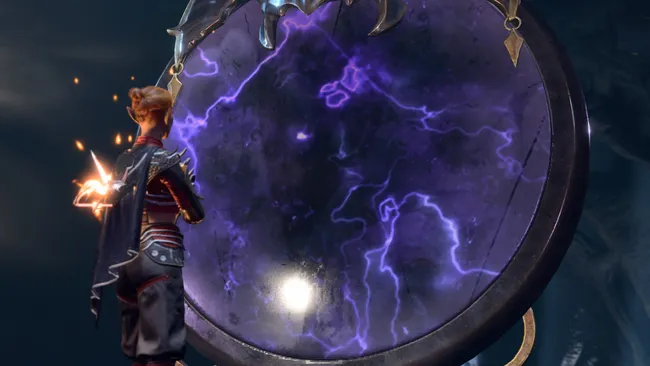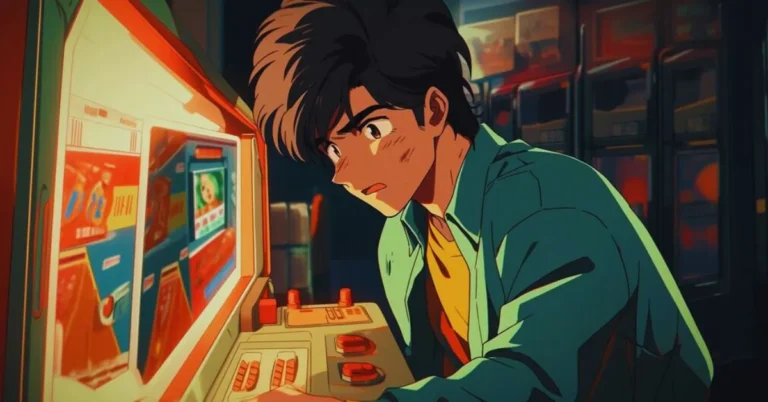In Baldur’s Gate 3 (BG3), a role-playing game set in the Dungeons & Dragons universe, the “Mirror of Loss” is a unique and mysterious feature players encounter during the later stages of the game, specifically in Act 3. The mirror serves not just as an object of lore but also as a key element that players can manipulate to gain significant benefits — particularly through Attribute Score Increases (ASI). To successfully navigate the mechanics of the mirror, it’s important to delve into the lore surrounding it, how to use it, and the consequences of interacting with it.
The Lore Behind the Mirror of Loss
The Mirror of Loss is a relic dedicated to a god known as “Shar,” the Mistress of the Night. Shar is associated with darkness, loss, and despair. She offers her followers a path through which they can cope with loss, but at a great cost. In BG3, this mystical mirror embodies that theme, allowing players to potentially gain great power, but only by giving up something of value. Interacting with it is a perfect representation of Shar’s philosophy — every gain is paid for in loss.
Shar is one of the most prominent deities in Faerûn’s pantheon, especially tied to themes of darkness, the night, and forgotten memories. As a relic of Shar, the mirror taps into these powers and offers players a chance to manipulate their character’s statistics. However, the underlying message is clear: to gain from the mirror, players must give up something else.
The Mechanics of the Mirror of Loss in BG3
Upon finding the Mirror of Loss in Act 3, players have the opportunity to enhance their character through Attribute Score Increases (ASI). The mirror provides a rare chance to permanently boost a character’s abilities, a crucial factor in character development. However, as its name suggests, the mirror demands a sacrifice in return. Players must trade one of their attributes to receive a +2 boost to another.
Steps to Use the Mirror of Loss:
- Religion Check: Before interacting with the mirror, players are presented with a Religion check. Passing this check provides insight into the mirror’s dark purpose. Failing the check doesn’t lock players out of using the mirror, but it means they lack an understanding of the risks involved, making it more dangerous to proceed [1].
- Making a Sacrifice: Once you pass the Religion check, the mirror offers you the chance to boost one attribute by two points, in exchange for reducing another attribute by two. For example, a player might choose to increase their Strength by +2 but suffer a -2 reduction to their Dexterity or Constitution. The mirror’s mechanics push players to think strategically about which attributes they can afford to lose in exchange for the increase [3].
- Repeat Use: It’s possible to use the Mirror of Loss multiple times, though each interaction continues to require sacrifices. Players who are prepared can stack several ASIs through repeated visits to the mirror, gaining up to +6 across various attributes by giving up points in others. This feature can make the difference in high-level combat or when tackling tough challenges toward the game’s end.
- Consequences of Loss: The decision to reduce certain attributes should be made with caution. Attributes like Strength or Dexterity directly affect combat effectiveness, while Wisdom and Charisma impact spellcasting and dialogue options. Losing points in critical attributes can hinder performance in future encounters, making the player’s decision irreversible and risky.
Strategic Considerations
The Mirror of Loss forces players to make choices with long-term consequences. To maximize its potential, players must carefully weigh which attributes are most valuable for their build and how they can afford to redistribute their stats without severely hampering their character’s overall capabilities.
Here are some strategic tips to consider:
- Fighter and Barbarian Builds: These classes benefit greatly from increased Strength or Constitution, which improves their ability to deal and absorb damage in close combat. Losing points in Intelligence or Wisdom might not drastically affect their performance, depending on the campaign.
- Spellcasters: For spellcasters like wizards, increasing Intelligence, Wisdom, or Charisma (depending on the type of spellcaster) is vital for more powerful spells. In this case, losing physical attributes like Dexterity or Strength could be the safer bet, assuming the character isn’t often involved in melee combat.
- Support Characters: Clerics or bards, who balance combat and support roles, might focus on improving Wisdom or Charisma at the cost of Strength or Dexterity. This allows them to cast more potent spells and succeed in key dialogue checks while minimizing the risk of taking direct hits.
- Utilizing Magic Items: In BG3, players can offset attribute losses through the use of enchanted gear. If a character sacrifices Dexterity for Strength, they might equip items that boost Dexterity to mitigate the loss. Proper equipment can make interacting with the mirror more manageable, enabling riskier but more rewarding attribute boosts.
Risks and Rewards
The Mirror of Loss exemplifies the balance of risk and reward central to Baldur’s Gate 3. While the opportunity to improve key attributes is invaluable for optimizing character builds, especially at higher levels of play, it comes with significant risk. Players must weigh how much they are willing to lose in order to gain the extra advantage. In a game where stat points can determine life or death in challenging encounters, choosing wisely is critical.
Moreover, the mirror ties into the theme of loss embedded in the character arcs and narrative threads woven throughout Baldur’s Gate 3. Many of the game’s companions, like Shadowheart, are followers of Shar, and the mirror’s mechanics reinforce their personal storylines centered on sacrifice, loss, and the pursuit of greater power at a cost.
Conclusion
The “Mirror of Loss” in Baldur’s Gate 3 presents a compelling opportunity for players to gain permanent Attribute Score Increases, but with a corresponding loss of other abilities. Shar’s influence over the mirror encourages players to reflect on what they are willing to sacrifice for power, both mechanically and thematically. The mirror rewards strategic thinking, forcing players to prioritize their most important attributes and consider how their choices will shape the remainder of their journey.
For any player looking to optimize their character, carefully approaching the Mirror of Loss could provide a powerful edge in the endgame, but only if they’re prepared to accept the mirror’s demanding toll.







